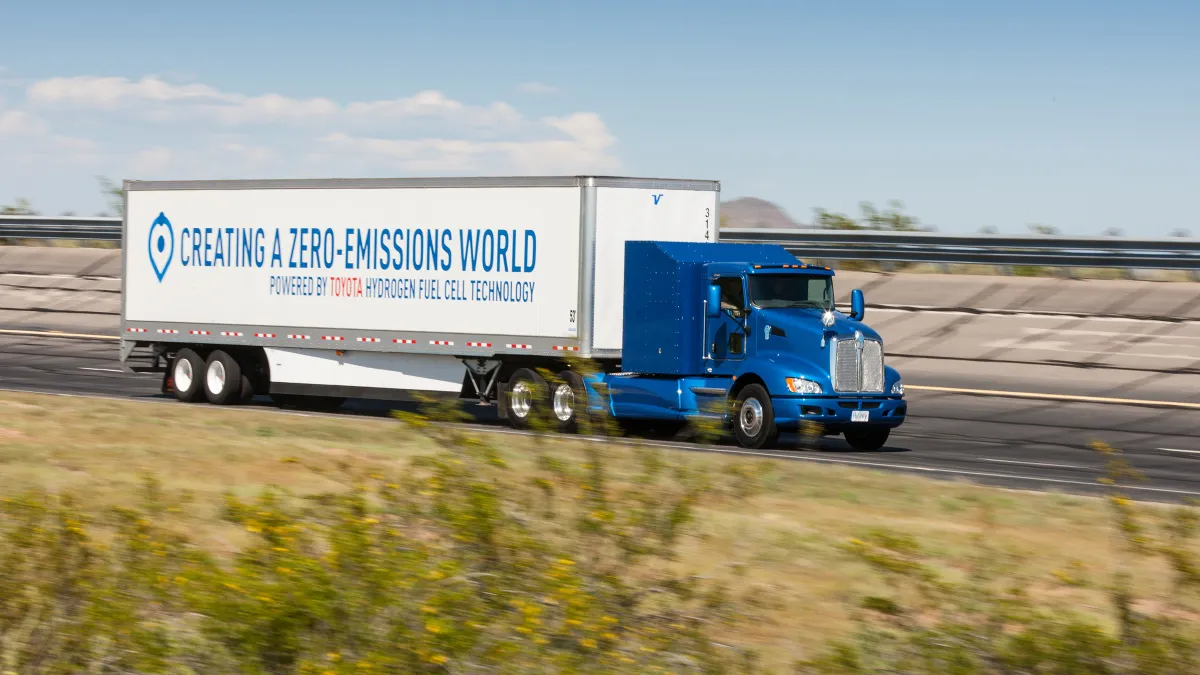Dive Brief:
- As part of a feasibility study to decrease emissions at the Port of Los Angeles, Toyota announced it sought to create heavy-duty, zero-emission hydrogen-fuel-cell trucks, The Verge reported Wednesday.
- If produced, the new fleet would reportedly become the strongest hydrogen fuel cell vehicle available: Toyota says it would generate rouglhy 670 horsepower and 1,325 pound-feet of torque with a 12kWh battery, allowing it to carry 80,000 pounds while traveling 200 miles per fill, under regular conditions.
- The "Project Portal" effort, as the initiative was named, is part of Toyota's effort to invest in fuel cell technology and a "hydrogen society." However, the lacking infrastructure for refueling such vehicles is a large barrier to adoption.
Dive Insight:
Considering medium- and heavy-duty trucks accounted for 6% of the nation's greenhouse gas emissions in 2014, per EPA data, it is no wonder communities protest supply chain efforts to boost volumes through local regions.
Ports have long been at one edge of local protests, as communities bemoan the air pollution from dozens of idling trucks by the ocean, and warehouses suffer at the other edge of the sword. For a long time, it seemed, there was no way to win the battle as economic growth required greater truck traffic — that's just how supply chains work.
It's always a breath of fresh air, then, when stakeholders announce collaborations aiming to decrease pollution; and the ports of California are leaders in this space.
The Port of Oakland recently announced it succeeded in reducing diesel emissions from trucks, ships, tugboats, trains and cargo handling equipment by 76%, or from 261 tons to 63 tons of emissions annually. Its efforts include a focus on trucks,with the implementation of programs that replace old cargo trucks and ban non-emissions standards-meeting trucks.
Now, the Port of Los Angeles' initiatives would seek to reduce emissions to 0% altogether with Toyota's hydrogen-powered truck. Of course, truckers would protest banning non-hydrogen trucks altogether, but over time the port could incentivize zero-emission vehicles to eventually reach the 0% threshold.
If Toyota successfully develops such a vehicle, and various ports follow suit in green efforts, the company would have a large share of the clean-truck market. Of course, Toyota's not the only company eyeing a green future. Despite earlier comments dismissing the value of hydrogen powered vehicles, Elon Musk has since reversed his stance, and is now promising the debut of an electric heavy-duty truck within 18 to 24 months.
Regardless, a green trucking future would serve supply chains well by, at minimum, reducing a key aspect of community resistance to local industry expansion.














